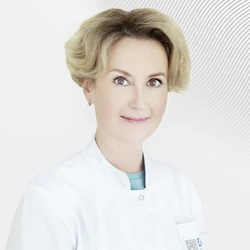Hepatitis C treatment in Moscow
Tells Tatiana Polunina,
gastroenterologist, hepatologist, Professor, MD
Currently, there is an increase in the incidence of hepatitis C, which is transmitted through contact with infected blood. In more than 85% of cases, the infection has a chronic course with a risk of liver cirrhosis, which is usually detected 20 years or more after infection. Transformation into cirrhosis during the natural course of the infectious process occurs gradually without pronounced symptoms, and treatment of the late stages of the disease is fraught with significant difficulties and is not always successful. For patients with chronic hepatitis C, the risk of developing liver cancer 20 years after infection is 1-5%.
The main feature of hepatitis C is genetic variability and the ability to mutate. The high mutational activity of the virus leads to the fact that there may be about four dozen subspecies of hepatitis C virus in the human body within the same genotype, so the immune system is unable to control the production of the necessary antibodies, because while antibodies are being produced for one subspecies of the virus, new subspecies with different antigenic properties appear. The latent period of the disease is about 50 days, while the symptoms of hepatitis C may not even appear: often patients learn about the infection only when cirrhosis of the liver begins.
In general, hepatitis C is an asymptomatic disease that is often diagnosed by accident. But meanwhile, it is possible to identify non-specific symptoms of hepatitis C, the presence of which does not indicate the disease. These include asthenia, fatigue, and weakness. In any case, it is necessary to periodically analyze for hepatitis, because the disease detected at an early stage is treated easier and faster.
Toxic hepatitis and chronic hepatitis C
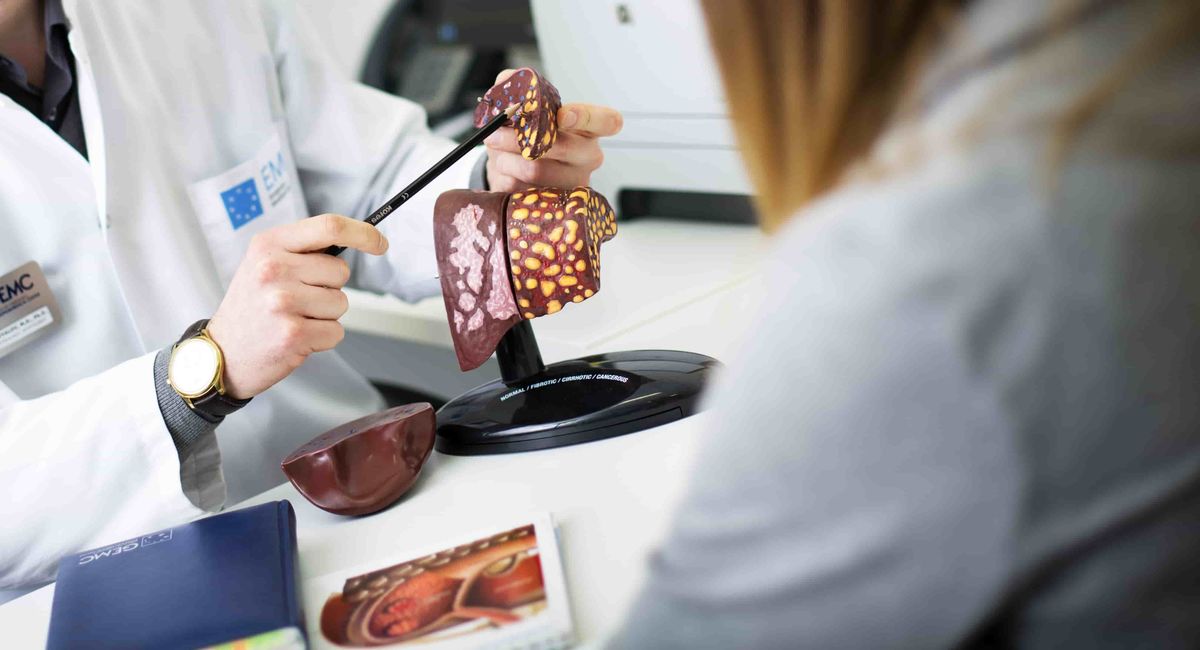
Delineating the individual stages of hepatitis C is important because of the need to determine indications for interferon therapy:
- Acute phase of infection: it is asymptomatic, patients are unaware of the infection and are the source of infection;
- Progression to chronic hepatitis: 85% of patients develop chronic hepatitis C after the acute phase, which can first occur latently (latent phase), and then begin to progress (reactivation phase), when clinical and laboratory signs of exacerbation of the disease are already detected.
- Transformation into cirrhosis of the liver is a serious disease, against the background of which complications and liver cancer may develop, leading to death.
Diagnosis of hepatitis C
A number of tests are performed to identify the virus and confirm the diagnosis. Currently, laboratory and clinical diagnostics are used to detect the virus. After diagnosis, a course of treatment is prescribed, the correct choice of which increases the chance of recovery. It should be noted that the method and duration of treatment, as well as the dosage of drugs, are selected individually for each patient, so that the effectiveness of therapy is 50-80%. But in order to "get" into the above percentage range, efforts are needed not only by the doctor, but also by the patient himself.
Treatment in which the hepatitis C virus RNA is not detected 12 weeks after taking medication is considered effective. In this case, it makes sense to continue antiviral therapy (HTP) for 24-48 weeks, depending on the genotype of the virus.
In the last 20 years, hepatitis C treatment has been marked by significant successes due to the introduction of pegylated (prolonged) interferons and viral replication inhibitors into clinical practice, which allows not only to prevent the development of such dangerous complications as cirrhosis and liver cancer, but also to completely eliminate the pathogen in many patients, leading to recovery.
Laboratory diagnosis of hepatitis
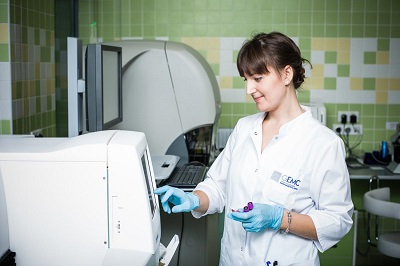 Laboratory diagnostics is based on the identification of specific markers of virus infection (virus RNA hepatitis C, anti-IgM/G).
Laboratory diagnostics is based on the identification of specific markers of virus infection (virus RNA hepatitis C, anti-IgM/G).
Based on the results, additional hepatitis tests are prescribed, after which the course of treatment is determined.:
- with normal biochemical spectrum parameters, the patient is under the supervision of the attending physician;
- if two norms of indicators of the biochemical spectrum of blood serum are exceeded: AST, ALT, alkaline phosphatase and total bilirubin, an immune enzyme blood test for anti-HCV is performed;
- with a positive result of the immune-enzyme analysis, as well as in the case of virus RNA detection and determination of the genotype and level of viremia, a polymerase chain reaction is used, the purpose of which is to select effective antiviral therapy;
- with elevated liver counts, a positive result of immune enzyme analysis and polymerase chain reaction, clinical diagnostics are performed, antiviral therapy is selected, and treatment effectiveness is monitored;
- in case of excess of the norm in liver samples and a negative result of immune-enzyme analysis, in case of excess of the norm in liver samples, a negative result of polymerase chain reaction and a positive result of immune-enzyme analysis, the patient is monitored once every three months.
Clinical diagnosis of hepatitis C
The diagnosis of acute hepatitis C is based on clinical, virological and biochemical data that have a clear connection with parenteral manipulations in the first months before its development: surgical operations, blood transfusion, the first injection of narcotic drugs, etc.
Unfortunately, most patients have no signs of acute hepatitis, and the detection of viral RNA does not allow to distinguish acute hepatitis from chronic hepatitis. In this case, diagnosis should be based on the availability of relevant data from the epidemic history 1-4 months before the first signs of hepatitis C were detected, which are antibodies to the hepatitis C virus and levels of enzymemia.
The criteria for diagnosis are enlargement of the liver and spleen, as well as the presence of hyperfermentemia and antibodies to the hepatitis C virus in the blood for 6 months. The exact nature of liver damage - the stage of fibrosis and the degree of necroinflammatory changes - can be determined by a liver biopsy, which is currently the most accurate and informative method for diagnosing chronic hepatitis C. The procedure is performed within a few seconds and is absolutely safe for the patient.
The presence or absence of hepatitis C virus RNA is not a diagnostic criterion for chronic hepatitis C, but only determines the phase of the process (active, inactive).
Toxic hepatitis: treatment
 Toxic hepatitis is called liver damage caused by any toxic agent: medicines, pesticides, household chemicals, occupational hazards, etc.
Toxic hepatitis is called liver damage caused by any toxic agent: medicines, pesticides, household chemicals, occupational hazards, etc.
Currently, there are two types of toxic hepatitis. The first type includes predictable liver damage, which is associated with the accidental use of a toxic substance of any origin. The second type includes unpredictable liver lesions, which include lesions of medicinal origin.
Treatment of toxic hepatitis is carried out according to the general principles of treatment of liver failure and only under the supervision of a doctor. In order to remove and suppress the formation of toxic substances in the body, a diet with a protein restriction in the daily diet of up to 50 g and regular intestinal flushing is prescribed. For the purpose of detoxification, procedures are carried out aimed at restoring and maintaining acid-base balance, electrolyte balance and elimination of metabolic disorders. These procedures include intravenous administration of glucose, ascorbic acid, potassium chloride and other solutions.
The course of treatment for toxic hepatitis is prescribed individually, depending on the degree of intoxication and liver damage. The criterion for effective treatment is the normalization of the general condition of the patient, including the biochemical parameters of the functional state of the liver.
The duration of treatment ranges from 2 weeks to several months, depending on the severity of the disease.
Chronic hepatitis: treatment
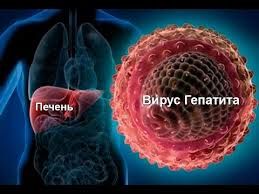 Hepatitis C infection leads to chronic liver disease and can cause cirrhosis or liver cancer if treatment is not started on time.
Hepatitis C infection leads to chronic liver disease and can cause cirrhosis or liver cancer if treatment is not started on time.
For optimal selection of a course of treatment for chronic hepatitis C, an individual approach and the availability of information are necessary.:
- about the history and course of the disease;
- about the factors influencing the progression of the disease;
- the results of continuous monitoring of the treatment;
- about the control of side effects for their correction and prevention.
Currently, the treatment of patients with chronic hepatitis C is based on interferon therapy or combination therapy. The duration of treatment depends on the course and stage of hepatitis and can last up to 12 months.
Why the EMC
The first and only clinic in Russia, created in the image of the world's leading clinics
EMC is a multidisciplinary center offering patients a high level of medical services and a personalized approach
Worldwide recognition and awards
 Learn more
Learn more
Worldwide recognition and awards
 Certificates and licenses
Certificates and licenses
Make an appointment for a consultation
Specify your contacts and we will contact you to clarify the details
Reviews
and new products of the EMC
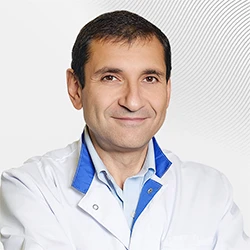

.webp)

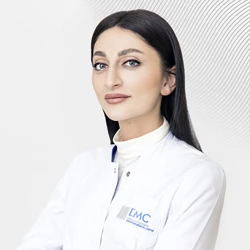

.webp)
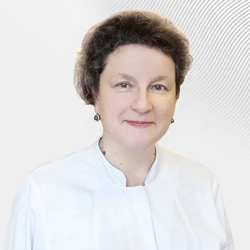
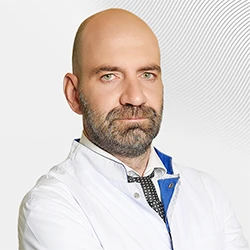
.webp)

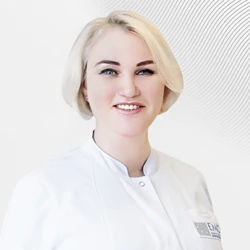
.webp)
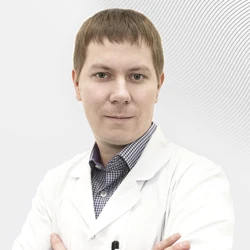
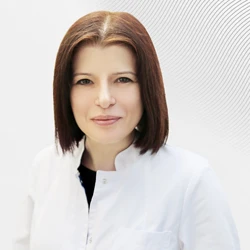
.webp)
.webp)
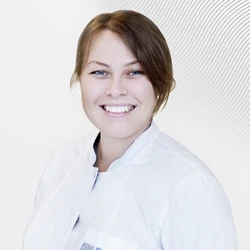
.webp)
